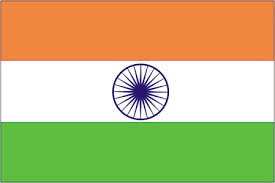STATEMENT BY AMBASSADOR ANUPAM RAY, THEMATIC DEBATE ON AGENDA ITEM #2 - PREVENTION OF NUCLEAR WAR, INCLUDING ALL RELATED MATTERS and ON FMCT, GENEVA, MARCH 12, 2024
Mr. Chairman,
Thank you for organizing this thematic debate on this important item on the Conference on Disarmament’s Agenda. We would like to use this opportunity to set out India’s position on a FMCT which is commonly accepted as the most important issue under this Agenda item.
2. Without prejudice to the priority India attaches to nuclear disarmament, we support the negotiation in the CD of a universal, non-discriminatory and internationally verifiable FMCT that meets India’s national security interests. India is a nuclear weapon state and a responsible member of the international community and will approach FMCT negotiations as such.
3. Our support for FMCT negotiations in the CD is consistent with India’s interest in strengthening the global non-proliferation regime that would add a measure of strategic predictability and a baseline for future global nuclear disarmament efforts. It is essential that all relevant countries participate in these negotiations in the CD and contribute to its successful outcome.
4. India was one of the original co-sponsors of the UNGA resolution 48/75L adopted by consensus in 1993 which envisaged FMCT as a significant contribution to non-proliferation in all its aspects. UNGA Resolution 48/75 L reflected with clarity the common understanding of the basic objective of the treaty. The mandate for the proposed treaty was explicitly reflected in this resolution and reconfirmed by the Shannon Report in CD/1299 i.e. to “negotiate a non-discriminatory, multilateral and internationally and effectively verifiable treaty banning the production of fissile material for nuclear weapons or other nuclear explosive devices”. This mandate was also reaffirmed by the CD in 1998 and 2009 in its consensus decisions and reiterated in resolutions on FMCT in the UNGA. We do not favour reopening this mandate which offers the best prospects for commencement of FMCT negotiations in the CD.
5. The CD constituted Ad hoc Committees on an FMCT in 1995 and then again in 1998. CD/1864 provided inter alia for establishment of a Working Group to negotiate an FMCT. India participated in the work of the Subsidiary Body 2 on FMCT in 2018 and joined consensus on the outcome report CD/2139. Although India would have preferred an explicit, unambiguous, and clear reference to an FMCT in the topics under Subsidiary Body 2 under the CDs Decision on its Work in 2022, India compromised in the interest of the CD’s work. India approached its participation in the proceedings of Subsidiary Body 2 in 2022 in the same constructive spirit of engagement, with a view to make progress on this substantive item. We call upon all parties to demonstrate the same spirit of compromise.
6. India has actively participated in every relevant forum on this subject, including the GGE on FMCT established pursuant to the UNGA resolution 67/53 and the HLEPG on FMCT established pursuant to the UNGA resolution 71/259 and welcomed their respective reports A/70/81 and A/73/159 adopted by consensus. At the same time, India had noted that the work of the GGE on FMCT and the HLEPG on FMCT amounted to neither pre-negotiations nor negotiations on an FMCT, which should take place in the CD on the basis of the agreed mandate.
7. The Reports of the GGE on FMCT and the HLEPG on FMCT underlined that the Treaty and its negotiation in the CD remains a priority enjoying broad international support and that the CD/1299 and the mandate contained therein remains the most suitable basis on which future negotiations should commence. In our view, this was the most significant conclusion of these consensus reports.
8. As to the scope, the FMCT must be a treaty for banning the future production of fissile material for nuclear weapons or other nuclear explosive devices. In our view, the FMCT is essentially about capping the future production of fissile material for weapon purposes. The obligations and responsibilities arising from the treaty must apply in a non-discriminatory manner to all States Parties directly affected by the treaty’s obligations and responsibilities. The treaty would be global in character thus excluding any regional specificity. An FMCT, in our view, is certainly not a regional arms control treaty.
9. The treaty should continue to allow the unhindered production of fissile material for permitted purposes under the treaty on a non-discriminatory basis. This would include the production of fuel for civil nuclear energy without prejudice to the variety of fuel cycles currently in use or envisaged for the future. Permitted purposes would also include non-proscribed military activities including production and use of fuel for naval propulsion.
10. India does not believe that a moratorium on the production of fissile materials for nuclear weapons or nuclear explosive devices can be a substitute for an FMCT. A moratorium by its very nature is voluntary, reversible and not verifiable, unlike an FMCT which will impose a treaty obligation, and will be verifiable and irreversible. A moratorium will only weaken the resolve to negotiate an FMCT and set us back. This would be contrary to our mandate and objective. India, therefore, does not support the call for a moratorium.
11 To conclude, India supports the CD as the world’s single multilateral disarmament negotiating forum and we hope that its member states will redouble efforts to enable the Conference to commence substantive work at an early date. This Conference should be allowed to fulfill its mandate as a negotiating forum by commencing FMCT negotiations on the basis of an early decision on its Programme of Work. It is unfortunate that this Conference has been prevented once again from commencing substantive work by a single delegation.












